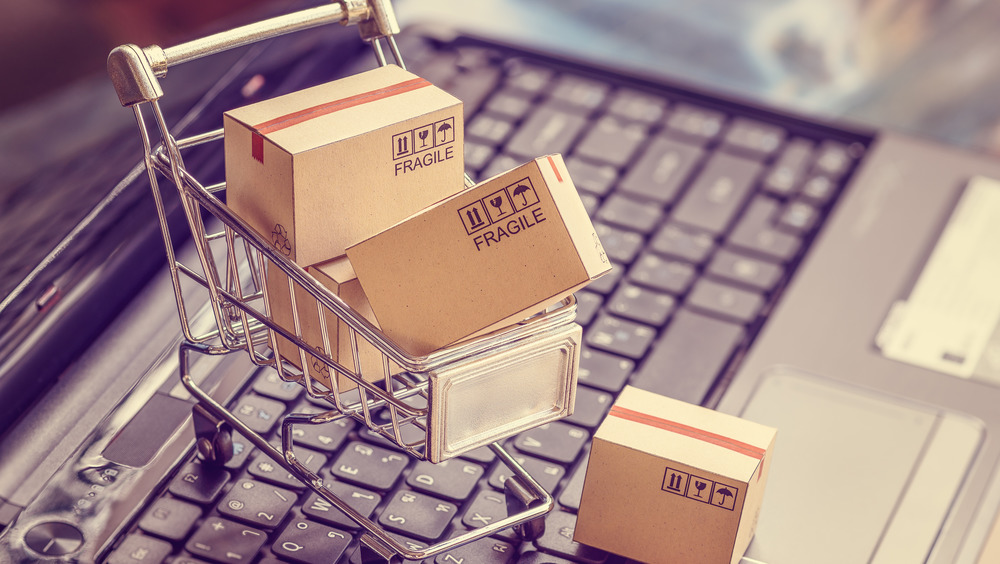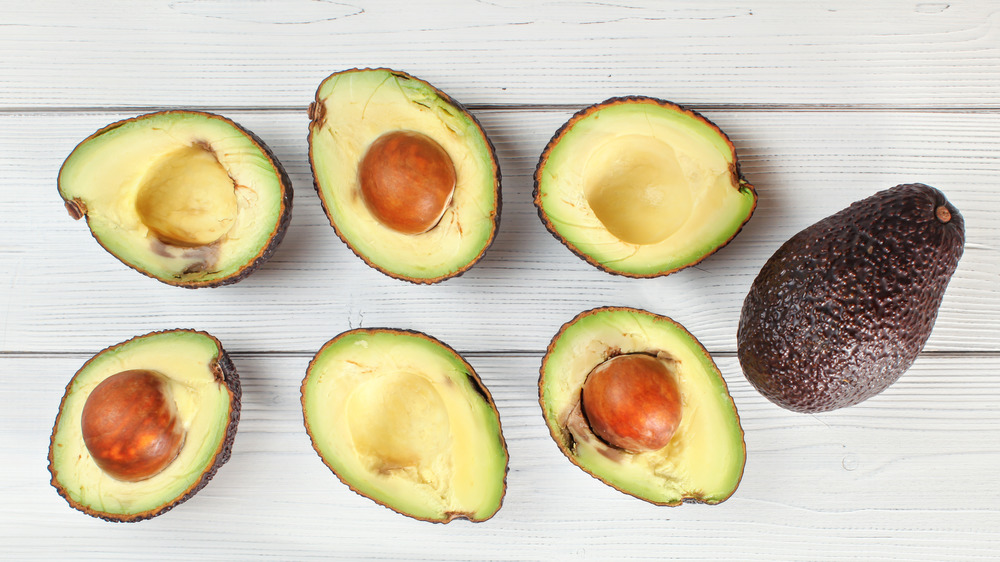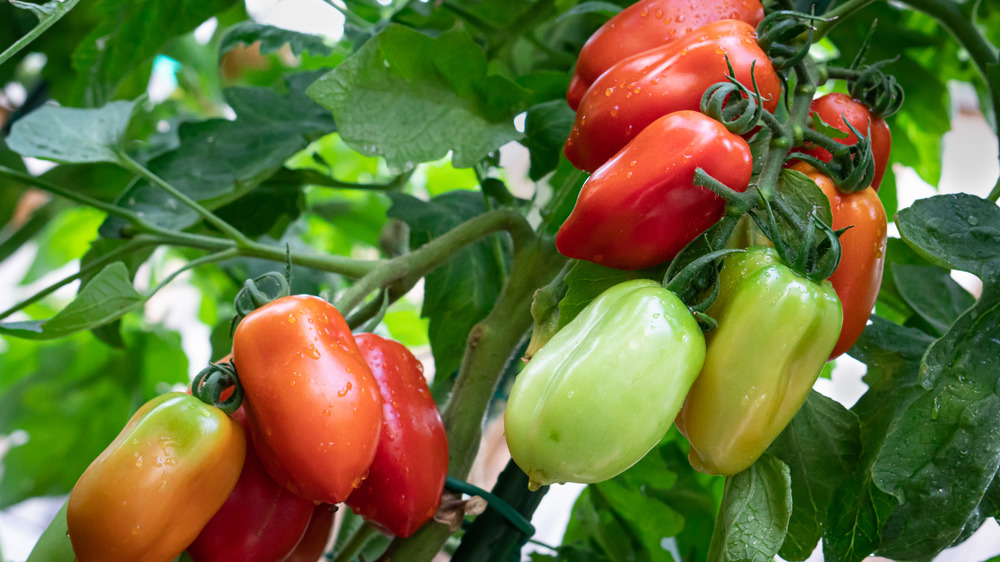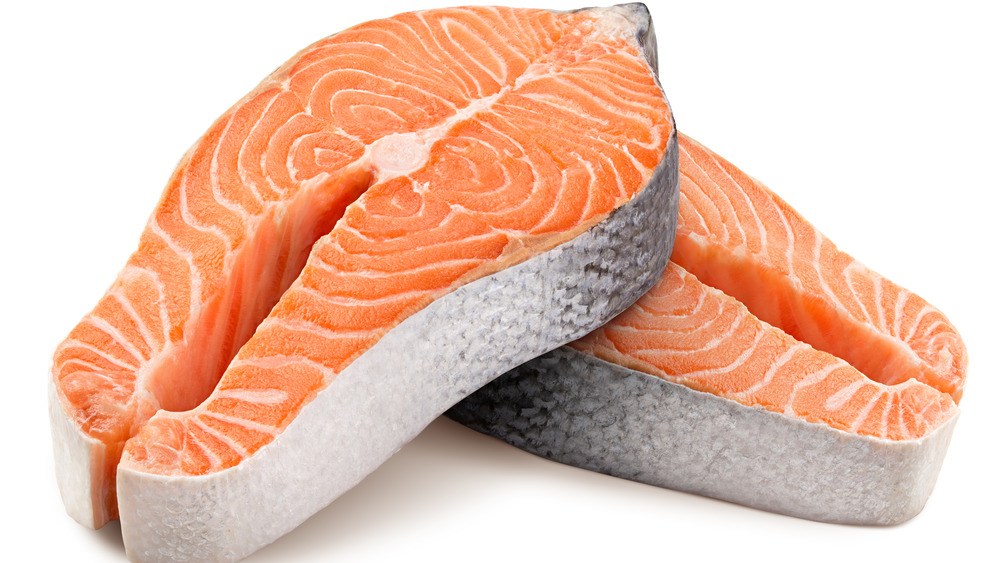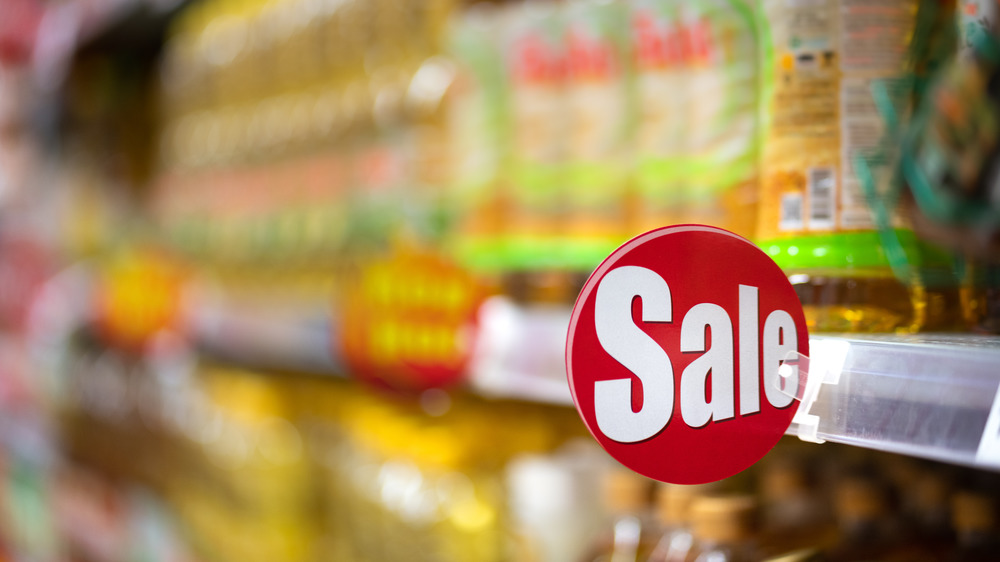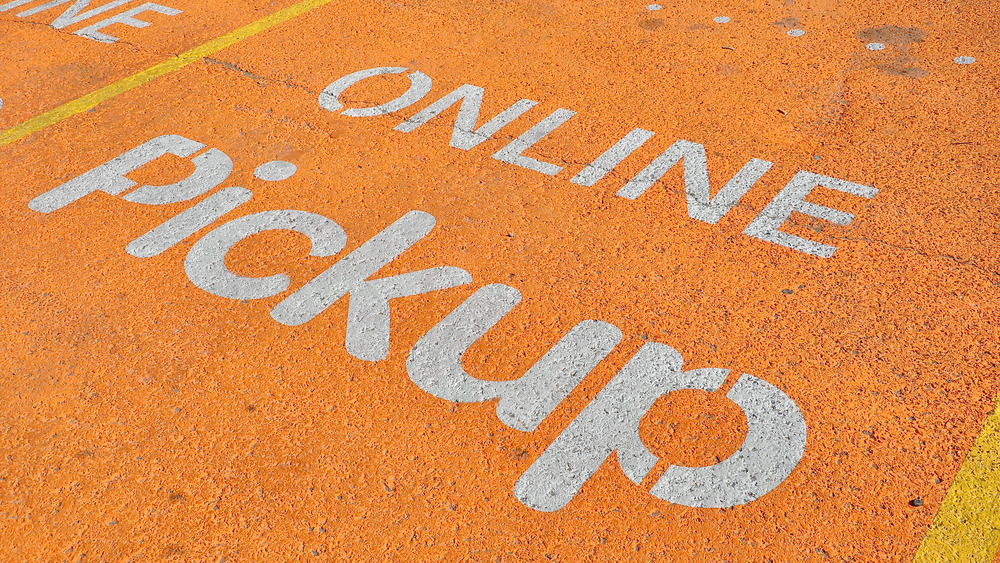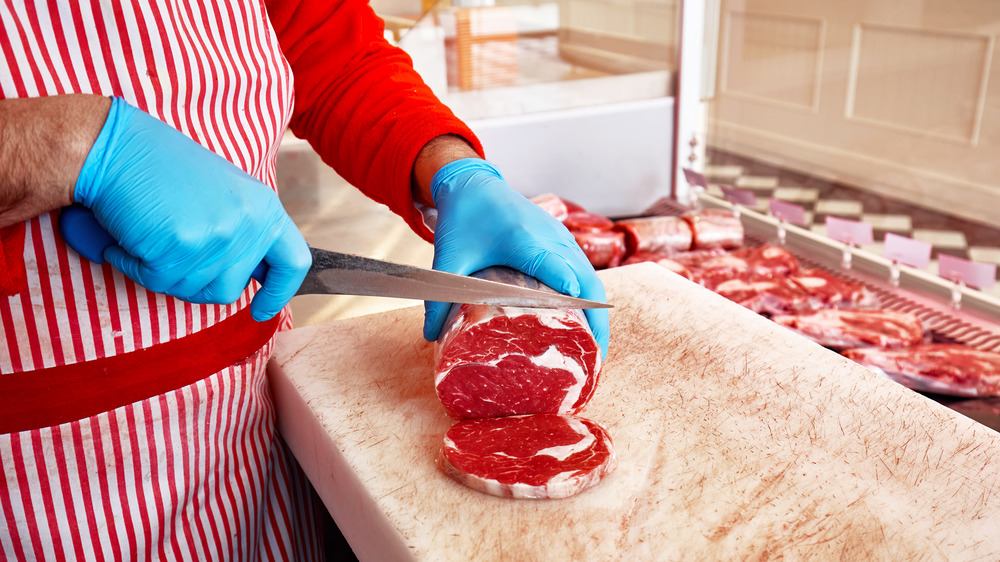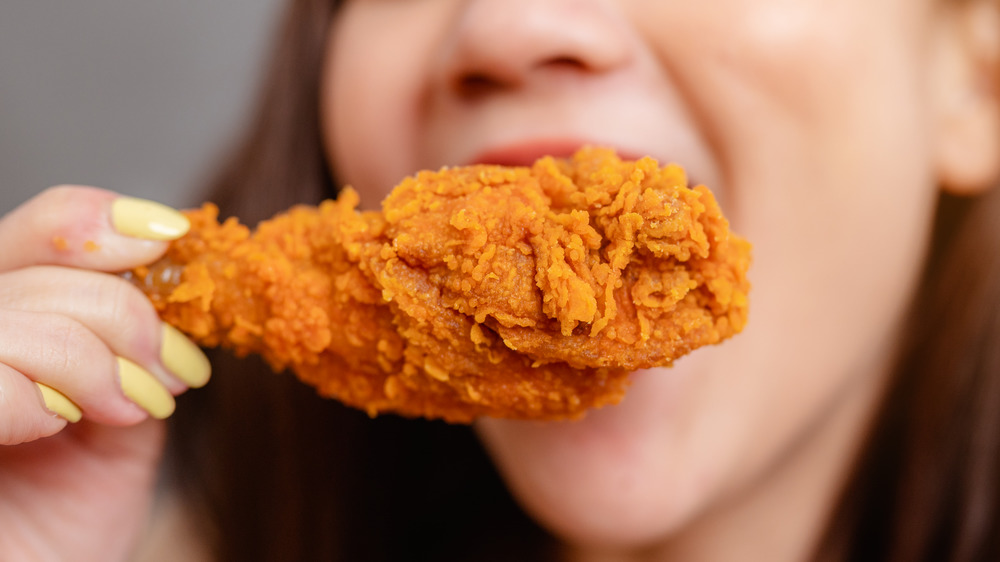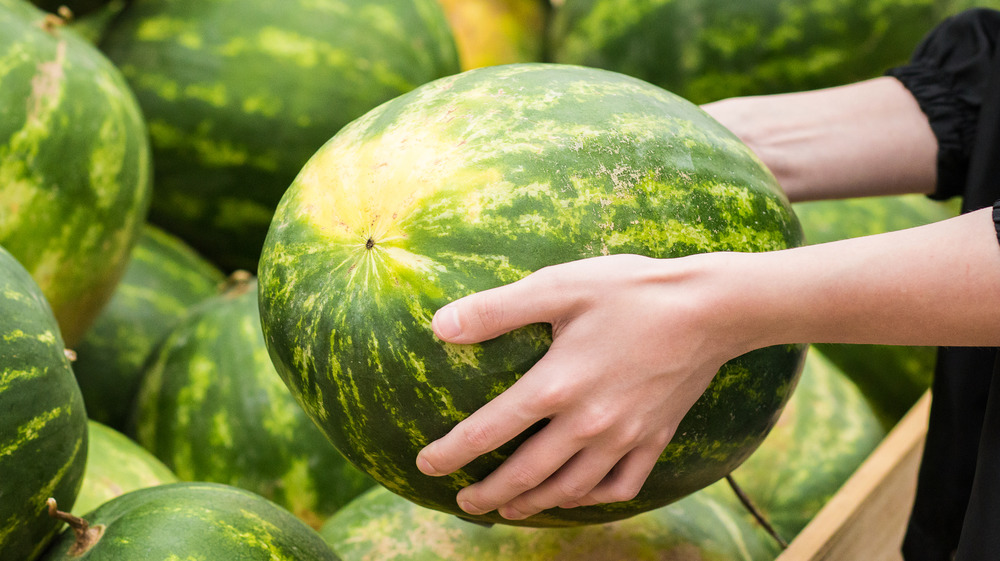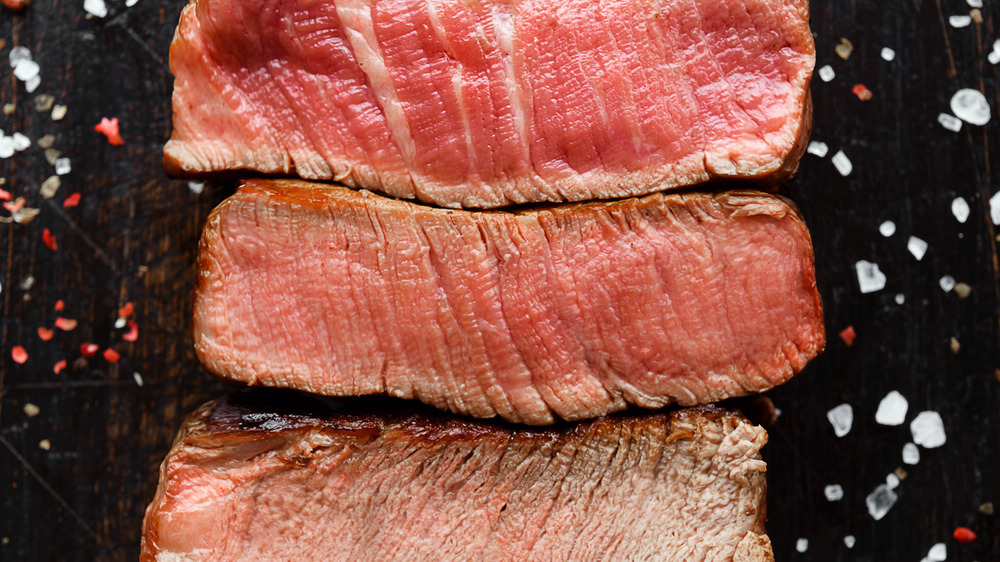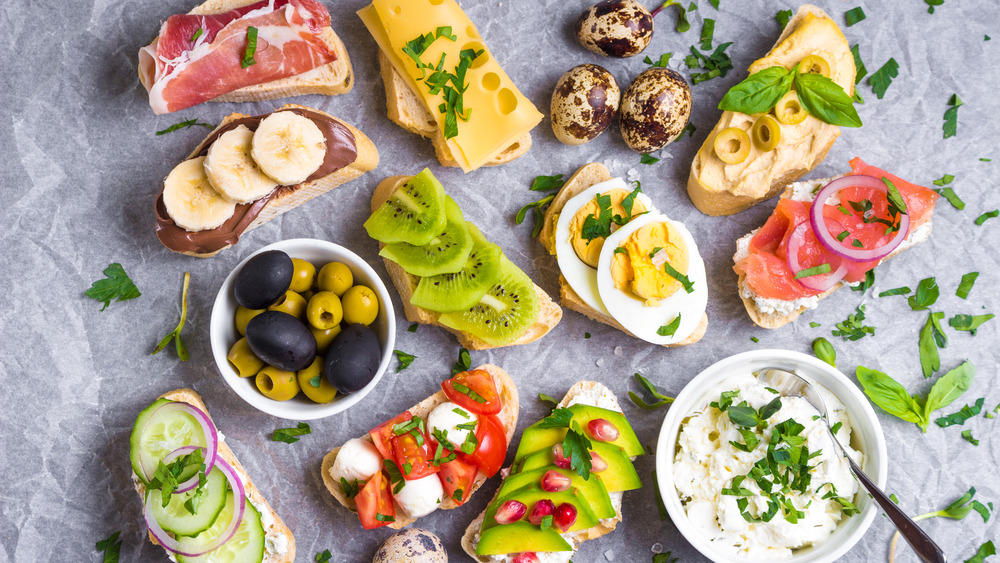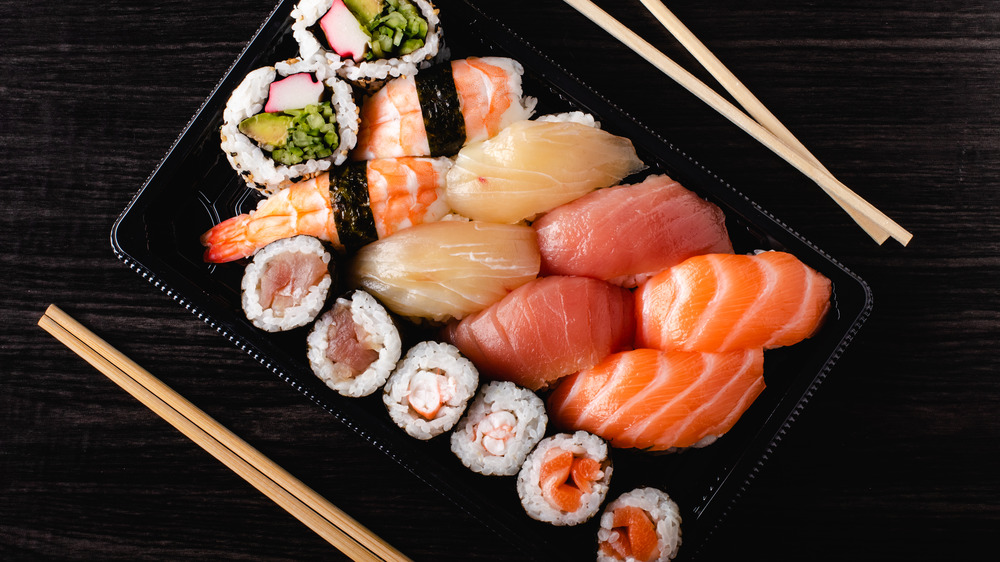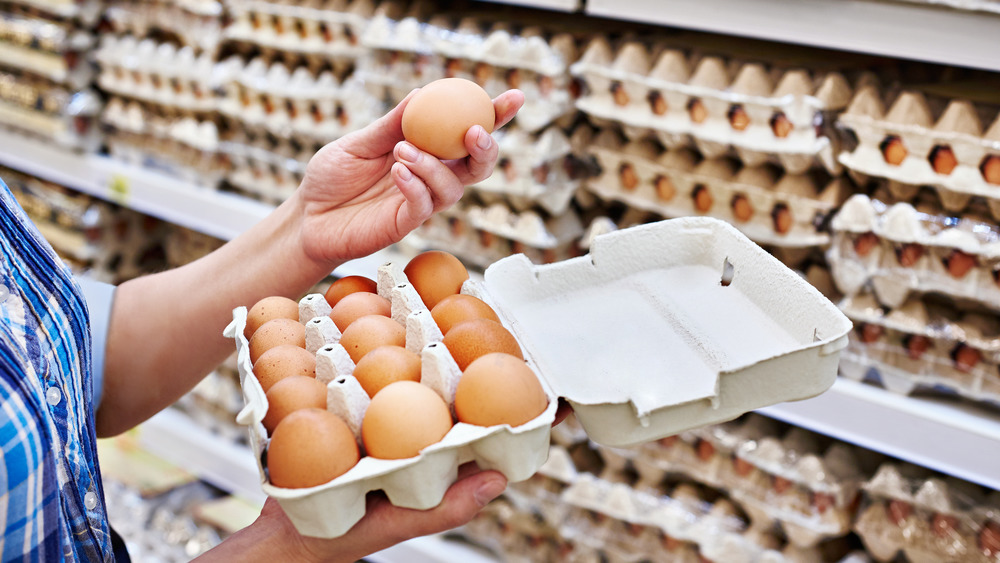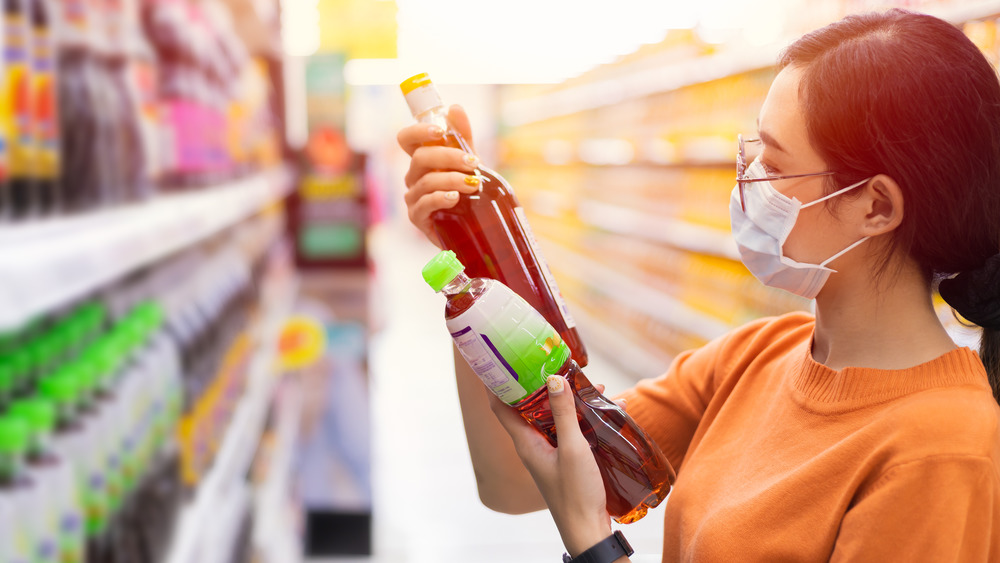Foods You Should Never Buy Online
There are plenty of foods you can buy online from your local grocery store or a distribution warehouse without a worry. Such a bounty includes cans of beans, bags of rice, or basically anything heavy that you don't want to lug home. Then again, there are also foods you probably shouldn't order online. Why be so wary? It's either because of the prices involved, the fact that someone else is picking and packing them, or potential food safety issues with grocery store delivery. Then there are the prepared items and fast-food meals where you'd be better off getting them as takeout rather than ordering for delivery. There are even foods you probably shouldn't be ordering at all, at least not if you want the same experience that you'd get eating at an actual restaurant.
While some of the foods on this list are obvious, a few of them might surprise you. So from buying meat online, to melons, to maki sushi, here are some foods you really shouldn't buy via the internet and why.
Avocados
Do you miss being allowed to squeeze an avocado before buying it? These days you're likely to get a dirty look –- if not a talking-to -– from staff or even your fellow customers who don't want you touching the merchandise before you commit to buying it. But how else will you know if your avocado is ripe, almost ripe, or could (like you) do with a week-long vacation before being (not like you) crushed into the perfect topping for avocado toast? Good luck choosing the ripest specimen for guacamole when you're ordering online the same day you want to make your favorite dip – or the week before, for that matter.
Either way, the avocado that arrives at your front step could very likely be under-ripe or overripe. That's because, according to Love One Today, avocadoes can go from just right to mushy mess in only a day or two. This means that you'll have to adjust your plans accordingly, sometimes at the last stressed-out minute. If you go to the store, though, and surreptitiously squeeze a few avocados, you'll be good to go. Everyone's washing their hands when they get back home anyway, right?
Tomatoes, peaches, and berries
Fast perishing fruits that tend to go moldy quickly and bruise easily are some of the worst foods to buy online. If you bravely order these produce standbys online, chances are all too good that you'll never see if any of them are truly good until your paid-for groceries arrive at your door. Then, your horrified eyes might spot a blackberry or raspberry covered in a white film hidden amongst the rest or a brown, rotting grape infecting its neighbor. You'll also never see if your peach, nectarine, or plum is wrinkled, dry, soft, or rock hard. So much for that fruit tart you had on the menu.
As with avocados, you won't know how ripe anything will be upon arrival. Odds are unfortunately good that your tomato might not taste like juicy sunshine, since you didn't pick the best one yourself in the produce section or at a farmer's market. That's assuming you really care about picking the best one, but, really, would Ina Garten or Martha Stewart let someone else pick their San Marzanos for them? Neither should you. Not that you should do absolutely everything Martha has done with her life, but surely it's safe to emulate her regard for the very best tomatoes. When it comes to these fruits — yes, tomato is a fruit, too — you're best off selecting them in person.
Cooked or fresh fish
Leaving cooked or raw foods of any kind outside your door for hours without ice packs or proper refrigeration is just asking for trouble in general, but doing that fish is an especially big no-no. If it sits at a temperature above 40 and below 140 degrees Fahrenheit for too long, says the Centers for Disease Control and Prevention, you could end up getting sick, even if you cook or reheat it properly. The worst part is you might not even know how long the fish was left unrefrigerated in the first place. It might have been in an alarmingly warm warehouse or car before arriving at your doorstep.
So unless you know that your items will be delivered with gel or ice packs and well surrounded by them besides, or that they're coming directly from the store without any delay, you're better off buying your fish at a store and bringing it home yourself. Besides, you won't know if the fish is fresh if you can't inspect its eyes, gills, or color before you buy it (via NDTV Food).
Anything that's on sale at your local store
Some people might think that buying on sale all the time is horrendously cheap, but smart shoppers simply call it practical. Finding the best deals on food instead of overspending by buying everything at full price is key if you're trying to save money. If you can save a few bucks because bananas, eggs, potatoes, and ground beef are all on sale at your local store that doesn't deliver, then surely you've got a pretty good reason to leave your house. The fact that, according to Better Marketing, you're more likely to spend extra money in a store through impulse buying might seem like a good reason to stick to digital marketplaces. Yet, it all depends on what you're grabbing, your own self-control, and whether or not you were actually going to buy it at some point anyway.
If you were going to pick up that extra can of on-sale tomatoes, that box of frozen burritos, or, let's be honest, that tub of Häagen-Dazs ice cream eventually, it makes them a good deal to get them on sale. You might as well save the money now. According to a First Insight report on consumer spending, you're definitely less likely to buy extra items if you're shopping online, so you're going to miss those sale items. Sure, there are plenty of online sales, but you just don't notice them the same way you would in aisles in a physical store.
Items you can order for pickup instead
Most online grocery stores and delivery apps are going to charge for delivery, whether they include that price in the checkout or integrate it into the cost of the groceries themselves (via NBC Washington). That means you can often save extra money by heading to the store yourself. It's true that there is a huge convenience factor to buying groceries online, but don't dismiss that hopefully short drive to the grocery store pickup spot. Ordering and then going to pick up your order is a good compromise between convenience and savings. You don't need to spend the time looking for that elusive bag of mini marshmallows for hot chocolate or that container of sour cream for your mashed potatoes, but you'll still get to inspect the avocado and tomatoes before you leave the store. That means there's less of a chance you'll be disappointed.
But, unless you're a true master of the grocery list, you have to admit that there's going to be some item you forgot to order anyway. Unless your order is huge and it would take an eternity to wheel through the store and get everything into your cart, you're probably better off just going into the store for your actual shopping.
Meat
Similar to fish, you don't want fresh or frozen meat sitting outside of a fridge or freezer for too long. No one, after all, wants to find out the hard way that some nasty bacteria has taken root in your favorite cut of beef. But you're also going to want to see the meat for yourself. You've arguably got to check out that marbling on your rib-eye and make sure your chicken is pink rather than grey before you spend your hard-earned money.
And while selection can be better online than in-store, you're going to pay more for that convenience. That means you would be even more upset if what shows up at your door isn't all that great. This is also why a good butcher is worth their weight in gold. Seeing them cut your meat to order instills a lot more confidence in the quality of the product than clicking a button for delivery and crossing your fingers.
Besides, what happens when a pound of chicken livers show up by mistake at your house instead of the chicken breasts you were planning to grill? Are you going to send them back? Nope. Sure, The Guardian reports that they're full of protein, vitamin B12, and folate, but the iron heavy flavor and creamy texture aren't exactly ideal for the grilled chicken Caesar salad or sesame chicken recipe you'd planned.
Fried chicken and French fries
Legend has it that, however unbelievable it may be, there are in fact some people who like soggy fried foods, like those who admit to the craving at Serious Eats. But let's be honest here, those people are the exception to the rule. When a certain kind of food is created to be crispy and fresh, the last thing it should be is greasy, cold, mushy, and old. Thanks to technological innovation, it's now possible to receive deliveries where your fries and fried chicken are still crispy. Yet, not every restaurant or delivery service is up to speed just yet. They may not be using packaging with vent holes, as some restaurant owners on Reddit recommend, and not every chef is changing up their batter recipes with the goal of long-lasting crispiness.
Plus, the downside of those seemingly simple vent holes is that the food isn't going to be as hot as it should be. There's always a trade-off. But do you know where there isn't a trade-off? When you eat at the restaurant or pick up your food and eat it immediately. Then, it's all hot and crispy perfection.
Watermelon
If you want an amazing watermelon – and I'm not talking a so-so melon that's about one step above sugar water – you're going to need to do some knocking. One of the tricks to picking the best melon is to gently knock on it in order to hear how hollow it is, the BBC reports. The more hollow, the better. The same goes for weight: the heavier, the better. Then there's the shape of the watermelon itself, reports Lumpy Batter. Turns out that round watermelons are generally sweeter than oblong ones. So how can you compare your watermelon with the others and make sure you're getting the best one without actually being in a store and choosing it yourself?
By ordering watermelon online, you might as well be buying a watermelon lottery ticket, with similarly poor chances at winning the actual lottery jackpot. One person is going to choose your watermelon for you, but they're also going to choose everyone else's. Only one lucky customer can get the best watermelon in the store or warehouse according to that employee's selection methods (and come on, they're definitely not knocking). Odds are that person is most likely not going to be you.
Cooked steak
The time your steak spends in a sealed bag on its way to your house is not helping its odds of staying at an ideal temperature, whatever that ideal may be for you. The difference between the upper end of "medium-rare" and the low end of "medium" is a few measly degrees. The same goes for "medium" and "well" and "well" and "well-done," with a mere 5 to 10 degrees separating each grade (via Traeger Grills). The worst-case and most likely scenario is that it will be over-cooked as it steams in transit, which would be a tragedy for a grass-fed tenderloin or Wagyu rib-eye.
But even if it's not overcooked, it could arrive cold, or at least cooler than the temperature to which it was carefully cooked, either of which can leave your longed-for steak bland and unappetizingly chewy. What a travesty! In the case of cooked steak, you're always better off eating it fresh from the grill, though with a five-minute wait to let it rest before slicing, of course.
Prepared sandwiches
There are some sandwiches that you just can't or shouldn't make at home. But for even the most elaborate combinations, you can usually buy all the ingredients you need and assemble the sandwich yourself for less, which usually also results in a fresher, tastier meal than what you'd buy at your local grocery store or deli – especially if you order it online and it's been sitting around waiting to be delivered.
Those store-bought sandwiches are a convenience food when you've got 10 minutes to grab something between meetings at the office. But, if your office happens to be within your own home, your kitchen will always be closer than the grocery store. Then why not just order in a tasty hot salami or cold cut sandwich from your favorite restaurant or deli? Sure, but you probably won't be doing that every day, either because of the expense or the eventual monotony.
The solution is to recreate that experience at home and vary it to your tastes by instead buying or ordering the ingredients themselves, like deli meats, cheeses, and rolls, so you'll be good for a week. Even if you're dreaming of bánh mì, you can always order a fancy pâté, pickled vegetables, and fluffy French-style baguettes to make your own. And come on, are you actually buying avocado toast? Try making it for yourself, at least once. This way, you choose the quality and price of your ingredients and never get bored.
Sushi
Sushi is meant to be eaten immediately, according to Sushi University, and it will never get better sitting around in a takeaway container. So any sushi you order for takeout or delivery will be less fresh than what you'd be served at the restaurant. When you go to a true blue sushi restaurant, the chef will usually serve you one piece at a time, as the Los Angeles Times reports. It's just plain bad etiquette to leave it sitting there while you chat with your neighbor. The chef prepared that piece so the rice wouldn't be too warm or too cold and the fish would be freshly sliced. If you're at a really high-end place, the nori will even be freshly toasted (via Saveur).
Even if you're not at a high-end place, as long as there's nori involved, it should be crispy, but it's much more likely to be soggy with delivery or takeout. That's not to say the sushi you order online will be bad. It's just that it won't be as good as it could be if you were eating it fresh. If you don't care that your sushi isn't quite at its best, then by all means order online. But if you want the best sushi experience and if you're ordering from a place where the chef bases their reputation on serving only the freshest, most perfect sushi, then you should never order sushi online.
Eggs
As with highly perishable fruit like blackberries and raspberries, you're going to want to inspect your eggs before buying them, not for mold, but for crack. Done online, it's all but impossible to inspect them for this egg-ruining flaw. It's also hard to know how long they've been unrefrigerated or stored at unsafe temperatures, which can lead to serious foodborne illnesses. The same goes for egg salad, egg sandwiches, quiches, and egg-based desserts like mousse or cheesecake, though those at least have some preservatives in them –- salt and sugar, as Scientific American reports, if not artificial preservatives –- to keep them safe for longer.
Because eggs in the U.S. are sterilized to remove external bacteria before they are sold, they lose a protective layer on their shells. This is why they should be refrigerated in the first place, at least in the United States. In Europe, eggs are often left out of the fridge because the chickens are vaccinated against salmonella and their eggs aren't treated (via Business Insider).
Anything you're comparison shopping
For items where you'll want to compare brands, the price per ounce, or ingredients before buying, but where that information isn't available online, the answer is a bit obvious. In cases like these, it's best to actually go to the store and do the comparison yourself. It's also just a lot easier, since how many online grocers have comparison tools? You'll end up clicking back and forth through pages, tabs, and searches instead of just holding a couple of products in your hands. Which sounds easier?
You might also be discriminating online against store-brand products or specialty brands when you shop online. Lower cost doesn't always mean lesser product. These items can have less sodium, fat, calories, or preservatives than the brand you would have automatically bought online. You might have completely ignored them online if you'd seen them at all. Shopping in-store gives you the chance to compare similar items that are sitting right next to each other on the shelf.
